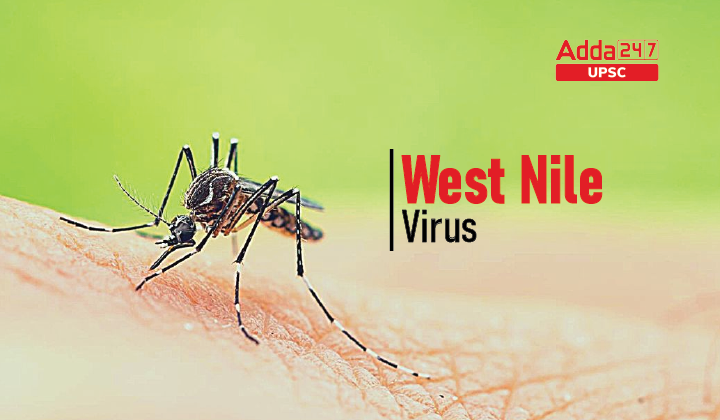Table of Contents
West Nile virus- Relevance for UPSC Exam
- GS Paper 2: Governance, Administration and Challenges- Issues relating to development and management of Social Sector/Services relating to- Health.
West Nile Virus in News
- Recently, the New York City Health Department announced that the West Nile virus had been detected in two people, one in Brooklyn and another in Queens, as well as in a “record number” of infected mosquitoes throughout the city.
- A total of 54 cases and four deaths have been reported throughout the country this year, according to the health department’s announcement.
PolioVirus: Polio found in London, New York and Jerusalem
Key Facts about West Nile virus
- About: The West Nile virus is spread through a bite from an infected mosquito and can infect humans, birds and other mammals.
- Host and Carrier: Birds are the main host of the virus and mosquitoes become infected by biting birds, according to the CDC.
- West Nile virus cannot be spread from person to person through casual contact.
- Symptoms: Most people who are infected by West Nile virus do not develop any symptoms or may experience mild to moderate illness.
- According to CDC, about 1 in 5 develop a fever, along with other symptoms like headaches, body aches, joint pains, diarrhea, vomiting or a rash.
- About 1 in 150 people infected develop severe illness affecting the central nervous system.
- Symptoms include high fever, headaches, neck stiffness, disorientation, coma, vision loss or paralysis.
- Diagnosis: A blood test can be conducted to determine a West Nile infection.
- Treatment: There are no vaccines or medicines that specifically treat West Nile virus infections.
- Over-the-counter pain relievers can be used to help with some symptoms and hospitalization may be necessary for more severe cases.
- Recovery: Recovery from a severe case of West Nile can take anywhere from several weeks to months, but central nervous system damage can be permanent.
West Nile Virus- Measures to Reduce Infections
- Using Insect Repellents: The New York City Health Department suggests using approved insect repellents that contain picaridin, which can be applied directly on skin and clothing.
- Limiting Outdoor Activities: Mosquitoes are most active from April to October, so limiting outdoor activities during those seasons particularly at dawn and dusk can also reduce the risk of contracting the virus.
- When outdoors, wear protective clothing during the evenings.
- During the day, avoid dark-colored clothing, shaded areas where mosquitoes lay eggs, and any perfumes, colognes and scented body lotions.
- Eliminating Mosquito Breeding Areas: People and government officials must actively eliminate mosquito breeding areas such as areas with standing water where they can breed.
WHO Declares Monkeypox a Public Health Emergency




 TSPSC Group 1 Question Paper 2024, Downl...
TSPSC Group 1 Question Paper 2024, Downl...
 TSPSC Group 1 Answer key 2024 Out, Downl...
TSPSC Group 1 Answer key 2024 Out, Downl...
 UPSC Prelims 2024 Question Paper, Downlo...
UPSC Prelims 2024 Question Paper, Downlo...





